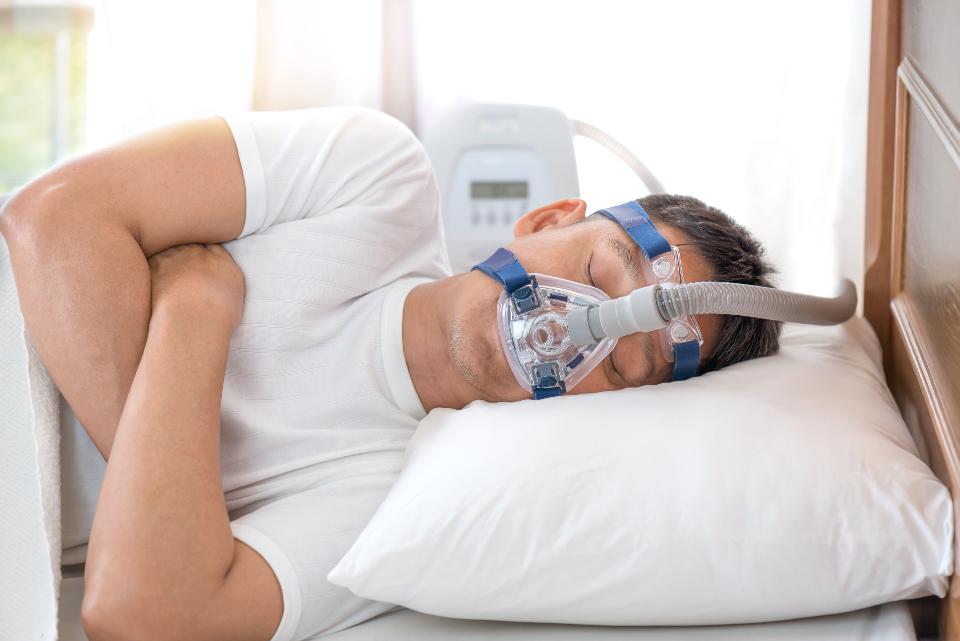
Prevention Measures For Obstructive Sleep Apnea
A heart-healthy diet and regular exercises are probably the most crucial things for your cardiovascular health.
But did you know that how you sleep and the quality of your sleep is also important to your heart’s wellbeing?
If you have sleep apnea, then you might be at risk of developing metabolic and cardiovascular health problems.
What scarier is that you might not even know if you have this problem, and yet it’s very common.
Sleep apnea is a condition that prevents breathing for short periods while sleeping.
People suffering from this condition rarely take enough oxygen while sleeping, resulting in them gasping for air and waking up.
But most people with this condition might not be aware they’ve stopped breathing, and they believe their sleep pattern is normal.
Most of the time sleep apneas sound like loud snoring. It leads to several medical cases if left untreated, including:
- Leading to poor immune function
- Contributing to memory loos
- Increasing your risk of heart failure
- Triggering mental issues
What Causes Sleep apnea
Sleep apnea results from the collapse or blocking of the airway. Various factors can lead to this, including:
Physical obstructions: Extra fat deposit or thickened tissue around your airway passage can restrict airflow. Air has to squeeze itself past the blocked airways resulting to load snoring usually associated with obstructive sleep apnea.
Muscular changes: When you’re sleeping, the muscle responsible for keeping the air passage open relaxes, as well as the tongue, resulting in a narrow airway. Naturally, relaxation of the throat muscles should not prevent the flow of oxygen in and out of the lungs, but with sleep apnea, it does.
Brain function: Central sleep apnea (CSA)- the less common form of sleep apnea- occurs when the neurological controls for breathing are faulty, affecting the way signals get transmitted from your brain to your breathing muscle.
When your airway collapses or gets completely blocked, you will not breathe for 10 -20 seconds or until when your brain senses the apnea and signals your breathing muscles to tighten, triggering airflow. The pause in breathing is the apnea.
Some people can wake up in the middle of the night because of shortness of breath and find it difficult to go back to sleep after that. While others might not even notice it. Central Sleep apnea is the underlying cause of medical conditions like heart failure or stroke.
Here’s a list of the common risk factors for sleep apnea:
- Obesity
- Chronic sinusitis
- Supine sleeping
- Recent weight gain
- Family history of sleep apnea
- Large neck circumference
- Smoking
- Large tonsils or adenoids
- Recessed chin or a large overbite
- Down Syndrome
The prevention measures
Prevention of sleep apnea relies on addressing the risk factors mentioned above. Here are some lifestyle activities that can decrease your chances of developing sleeping apnea. These recommendations can also serve to treat sleep apnea if it has already developed.
Maintaining a healthy weight (or losing weight if you’re overweight)
Doctors often recommend people suffering from sleep apnea to lose extra pounds. Excess weight or obesity, especially on your upper body, might result in airway obstruction or narrow airway passages.
Such obstruction can prevent you from breathing suddenly for short periods while sleeping. Having a healthy body weight keeps your airways clear and reduces the risk of developing sleep apnea.
Weight reduction in people with sleep apnea can also eliminate the need for long-term CPAP therapy or upper airway surgery. It can also get rid of sleep apnea completely.
Exercising regularly
Exercising regularly not only strengthens your heart and increases your energy levels but also improves sleep apnea. Exercises like Yoga can enhance your respiratory strength and boost oxygen flow.
Sleep apnea is often associated with low oxygen levels in your blood. Various breathing exercises can boost your oxygen levels, resulting in fewer sleep interruptions.
Stopping smoking and avoiding alcohol
Adopting a healthy lifestyle can significantly improve your health and promote better sleeping patterns. If you smoke and drink too much, especially in the hours before bedtime, consider stopping to reduce the risk of developing sleep apnea.
Alcohol affects the functioning of your throat muscles responsible for controlling breathing. It relaxes it resulting in snoring and interrupted sleeping cycle. Also, it might cause the inflammation of your air passages, preventing airflow.
Just like alcohol, tobacco from smoking can result in the inflammation of your airways, worsening your sleep apnea and snoring.
Changing your sleeping position
While it’s a minor alteration, changing your sleep position can greatly reduce the symptoms of sleep apnea and result in better sleep.
According to a 2006 study, about half the cases of obstructive sleep apnea results from unhealthy sleep positions.
One study said sleeping on your back, also known as a supine position, can increase your risk for developing sleep apnea and increase its symptoms if you already have it.
In adults, sleeping on the side can normalize your breathing patterns. However, in children sleeping on the back alleviates sleep apnea symptoms.
Apart from changing sleep position, elevating the head of your bed, or using a sleep apnea pillow to raise your head can help in reducing sleep apnea symptoms and improve your night sleep.
Consult your doctor or physician to discuss your sleeping position and sleep apnea symptoms and evaluate your treatment options.
Using a humidifier
Humidifiers add moisture to the air. Since dry air can irritate your respiratory system and overall body, you need moisturized air to keep your airways open and reduce congestion. A humidifier also cleans the air your breathing.
You can add peppermint, eucalyptus, and lavender oils to your humidifier because they come with anti-inflammatory and soothing benefits.
Other practices
Avoiding sedating drugs
Playing wind instruments
Using decongestant and anti-allergy medication, open nasal passages
Final Thoughts
According to SleepStandards, there are many effective treatments for sleep apnea, but remember prevention is better than cure. Adopt a healthy lifestyle to reduce the risk of developing sleep apnea symptoms.
Also, if you already have sleep apnea consult your doctor for effective treatment options. Don’t pursue any alternative treatments without consent from your doctor. If the symptoms worsen, seek quick medical assistance.





More Stories
Is Vaseline an Indian Company? True or Not
Hrms Login Medicover – Tips and General Step to login
wheonx health: Latest Health News Portal